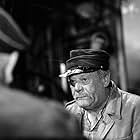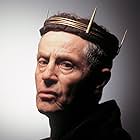Browse episodes
Photos
Storyline
Did you know
- ConnectionsFeatured in Predcasná úmrtí: Nespoutaný zivel (2002)
Featured review
"F. L. Vek" is legendary TV serial based on the extensive novel by Alois Jirásek, famous Czech author of historical novels. Its central character is Frantisek Ladislav Vek, literary projection of interesting historical person living in years 1769 and 1847. The serial catches his childhood in the village, teenage in one Prague cloister, where he was educated, young years in Prague where he was studying philosophy and adult age after his comeback to village. He was big lover of art and music. His life was an encounter between longing and need, art and conventional life of village merchant, obligation and love, Catholicism and protestant faith. He was big patriot and he consorts with many Czech artists of its time (so the serial is full of historical men and women). He also met W. A. Mozart and sang in the premiere of his opera Don Giovanni. The important theme of the time was Czech language (in relationship with German language) which was viewed as one main element of nationality. And fight for it was the leitmotiv of all Vek's (Hek's) life.
This serial which reflects the epoch of the birth of independent Czech nation was pictured in the similar time. 1971 was time when the idea of so called Prague Spring (1968) was suppressed by starting Normalization. Serial represents national trusts in social and political changes on the picture of Czech National Revival. There were many analogies between those and these days (e.g. censorship, religion submission, totalitarianism, domiciliary search and - - revolt against it, braveness of revivalists...). The performances are great. Radoslav Brzobohatý is excellent in his role of young and adult F. L. Vek, Antonie Hegerlíková as his mother is moving and convincing (as well Jan Pivec in role of his severe and unwavering father), Jan Triska as poet Sebestian Hnevkovský is cheerful, Radovan Lukavský as poet, translator and dramatist Václav Thám is splendid in his rise and fall. I must recommend this work (which had been forbidden for a long decades of communist totality in Bohemia) - it's an example of "ancient" art of Czech TV serial. The best actors, perfect screenplay and fascinating atmosphere.
This serial which reflects the epoch of the birth of independent Czech nation was pictured in the similar time. 1971 was time when the idea of so called Prague Spring (1968) was suppressed by starting Normalization. Serial represents national trusts in social and political changes on the picture of Czech National Revival. There were many analogies between those and these days (e.g. censorship, religion submission, totalitarianism, domiciliary search and - - revolt against it, braveness of revivalists...). The performances are great. Radoslav Brzobohatý is excellent in his role of young and adult F. L. Vek, Antonie Hegerlíková as his mother is moving and convincing (as well Jan Pivec in role of his severe and unwavering father), Jan Triska as poet Sebestian Hnevkovský is cheerful, Radovan Lukavský as poet, translator and dramatist Václav Thám is splendid in his rise and fall. I must recommend this work (which had been forbidden for a long decades of communist totality in Bohemia) - it's an example of "ancient" art of Czech TV serial. The best actors, perfect screenplay and fascinating atmosphere.
- theatrum-1
- Aug 15, 2007
- Permalink
Details
- Release date
- Country of origin
- Language
- Also known as
- Der junge Herr Vek
- See more company credits at IMDbPro
- Runtime11 hours 33 minutes
- Color
- Sound mix
- Aspect ratio
- 1.33 : 1
Contribute to this page
Suggest an edit or add missing content


















